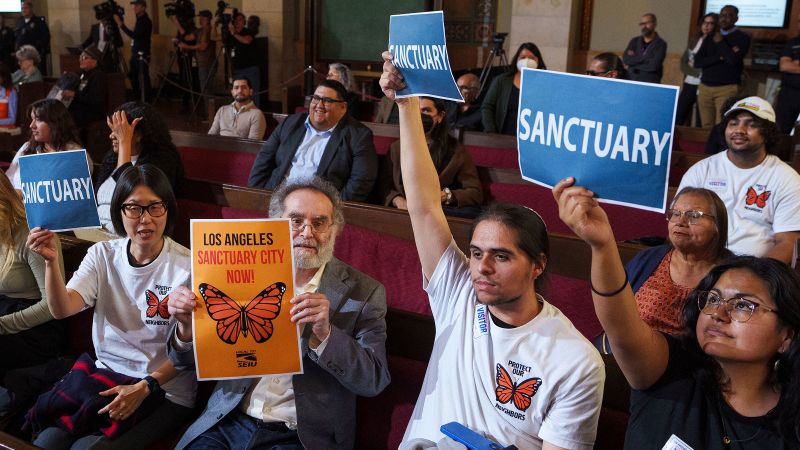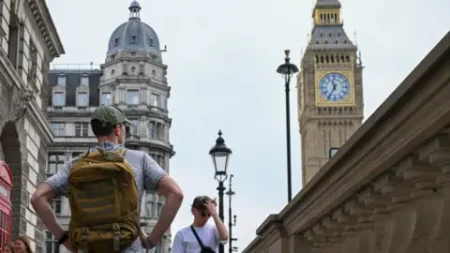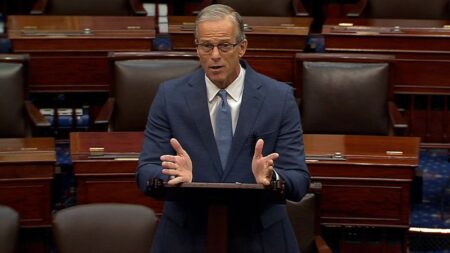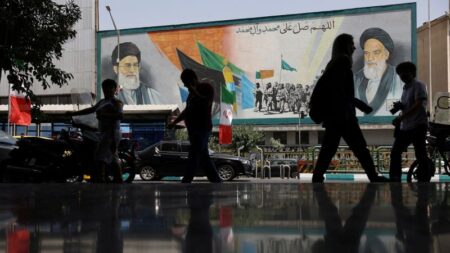The ongoing discourse surrounding immigration enforcement in the United States has taken a dramatic turn as the Department of Justice (DOJ) files a lawsuit against the city of Los Angeles. This civil action is directed at challenging the city’s recently enacted “sanctuary city” policy, which was implemented shortly after Donald Trump’s victory in the 2024 presidential elections. The policy in question is designed to restrict municipal resources from being allocated to federal immigration enforcement activities.
According to the lawsuit filed on a Monday by the DOJ, the policies established by Los Angeles officials unfairly obstruct and discriminate against the federal government’s ability to enforce immigration laws as mandated. The legal representation for the federal government asserts that these local laws effectively undermine the scope of federal authority in regulating immigration, raising alarming concerns over the implications of such unauthorized governance.
The DOJ’s complaint articulates a stark response to the effects the sanctuary policies have allegedly produced in the city. The lawsuit claims, “The practical upshot of Los Angeles’ refusal to cooperate with federal immigration authorities has, since June 6, 2025, been lawlessness, rioting, looting, and vandalism.” This statement enunciates a narrative of chaos, suggesting that the city’s non-compliance with federal directives has dramatically deteriorated public order. As a significant response to the rising unrest, the federal government reportedly deployed the California National Guard and United States Marines in efforts to restore stability in the region, further escalating tensions between local and federal authorities.
The Los Angeles City Council, when enacting this law in November 2024, characterized the ordinance as a protective measure for immigrant residents. In their announcement, city officials noted that the newly adopted statute permanently integrates sanctuary policies into the city’s legal framework. It prohibits the use of city resources—including personnel and property—for the purpose of immigration enforcement or in collaboration with federal immigration operations. The aim of this measure is to safeguard vulnerable populations within the city from potential deportation and related actions taken by federal agents.
One of the critical aspects highlighted by the Council is the prohibition against both direct and indirect sharing of data with federal immigration authorities. This provision, as described in the city’s communication, is seen as an essential enhancement to the protections afforded to immigrants in Los Angeles, filling what they perceive as a crucial gap in safeguards against federal overreach.
Contrastingly, the DOJ argues that the enactment of this law obstructs city officials from facilitating federal immigration efforts, sharing pertinent information, and collaborating in a manner compliant with constitutional requirements. They claim that the sanctuary policies are not merely a local governance issue but have broader implications that potentially undermine the coherence and efficacy of law enforcement at the national level.
Expressing a forceful stance, Attorney General Pamela Bondi, through a press release detailing the lawsuit, illuminated the DOJ’s perspective on the impact of sanctuary policies. She articulated, “Sanctuary policies were the driving cause of the violence, chaos, and attacks on law enforcement that Americans recently witnessed in Los Angeles.” Bondi further emphasized that jurisdictions like Los Angeles, which prioritize the protection of undocumented individuals over the enforcement of federal laws, pose a substantial threat to public safety and undermine law enforcement efforts across the board. She concluded with a resolution that such practices will cease under Trump’s administration, indicating a potential shift in the federal approach towards sanctuary jurisdictions in a post-campaign landscape.
In conclusion, the lawsuit against Los Angeles represents a critical flashpoint in the ongoing national dialogue on immigration policy, federal intervention, and local governance. As the legal proceedings unfold, they will not only examine the intricate relationship between state and federal authorities but also reveal the extent to which cities can assert their autonomy in shaping immigration policy against the backdrop of federal mandates. The outcomes of this legal challenge could set significant precedents for other sanctuary cities across the United States, defining the future landscape of immigration enforcement in years to come.











